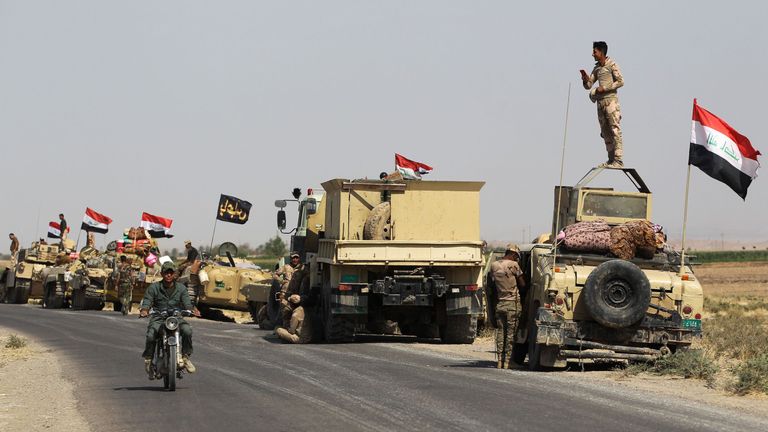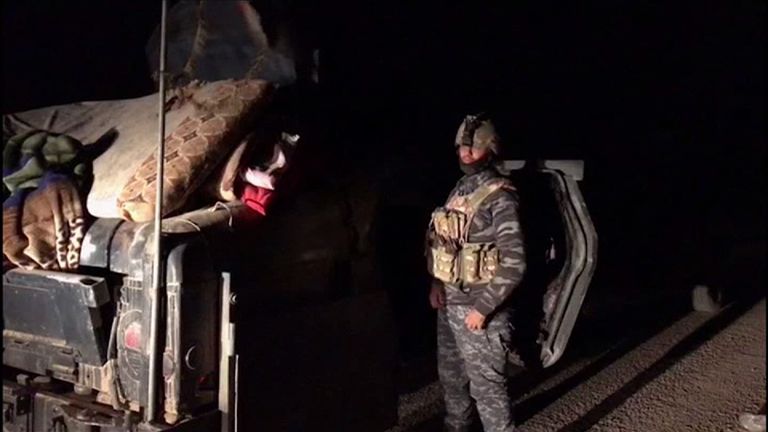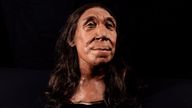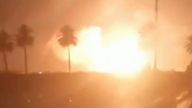Iraqi and Kurdish forces clash in oil-rich Kirkuk
Iraqi forces enter areas that were taken by Kurdish militias three years ago to defend Kirkuk against Islamic State.
Monday 16 October 2017 03:39, UK
Clashes have broken out between Iraqi and Kurdish forces south of the city of Kirkuk.
Iraqi state media said that federal troops had entered disputed territories occupied by the Kurds, saying they had taken control of "vast areas" without opposition from the Kurdish peshmerga.
Kurdish officials, however, denied that the Iraqi forces had been able to get close to Kirkuk city and said that the oil fields west of the city were still under Kurdish control.
Iraqi Prime Minister Haidar al Abadi's office said in a statement that federal forces must "impose security in the city in cooperation with the inhabitants and the peshmerga".
According to Mr Abadi's office, the mainly Shia Popular Mobilisation Militias, seen by many Kurds as more aligned to Iran than Iraq, were told to stay out of Kirkuk city.
In the city itself, which has a multi-ethnic population of more than one million people, many residents stayed in their homes, reporting intermittent shelling and rocket fire.
In 2014, as the Iraqi army collapsed in the face of the advancing Islamic State fighters, the Kurds deployed into the disputed area to defend Kirkuk.
The Kurdish fighters prevented Kirkuk's oil fields from falling into IS hands.
But there have been calls from Baghdad for the Kurds to hand back control of the area ever since.
Among the infrastructure in the disputed area is the K1 base, five miles north of Kirkuk and previously one of Iraq's main army bases. Nearby is an oil refinery and and an airport.
Tensions between the Iraqi Kurds and the central Iraqi government have been especially high since the Kurds voted overwhelmingly for independence in last month's referendum.
The Iraqi central government has refused to acknowledge the result, saying the referendum was unconstitutional.
It has also said the Iraqi Kurds should accept shared administration over Kirkuk.
Leaders of Iraq's Kurds have refused to put aside the referendum result but instead repeated an offer to resolve things with Baghdad "peacefully".




